Starting your day with a healthy, nutritious breakfast will not only keep you fueled throughout the day, but your overall health will benefit. Eating breakfast has been found to lower your risk of heart attack, lower your risk of diabetes, and improve your focus and attention span. Not only is it good for your health, but eating breakfast can help you keep off the pounds. According to a research project from the National Weight Control Registry, 78% of people who are able to lose weight and keep it off eat breakfast every day.
But it's not just about eating breakfast…it's about what you're eating. And if you're choosing unhealthy options, you're likely not setting yourself up for success or optimal health. Here are 13 foods that dietitians suggest you should definitely skip first thing in the morning.
Sugary Breakfast Cereal

"Starting your day off with a bowl of cereal is likely setting you up to feel hungry soon after as most cereals are made with refined flour, meaning they are low in fiber," says Kelli McGrane MS, RD, registered dietitian and Lose It! nutrition consultant. "Plus, they also tend to be high in sugar and low in protein. Also keep in mind that even cereals that claim to be made with whole grains, often contain very little actual whole grains."
Sausage

"Although sausage is a food eaten by many for breakfast or at weekend brunch, sausage isn't the most nutritious morning option. Sausage is made from ground meats, fat, spices, flavorings, and binders," says Roxana Ehsani, MS, RD, CSSD, LDN, registered dietitian nutritionist, and Spokesperson for the Academy of Nutrition and Dietetics. "Sausage tends to be high in sodium (foods high in sodium may raise one's blood pressure and therefore does not support a healthy heart or healthy blood pressure), high in saturated fat (foods high in saturated fat may raise your bad LDL-cholesterol), and high in overall calories. Processed meats like sausage have been linked to an increased risk of chronic diseases and cancer. Instead of choosing sausage in the morning, why not choose another high protein option like eggs, Greek yogurt, or nut butters like almond butter or sunflower seed butter."
Wheat Bread
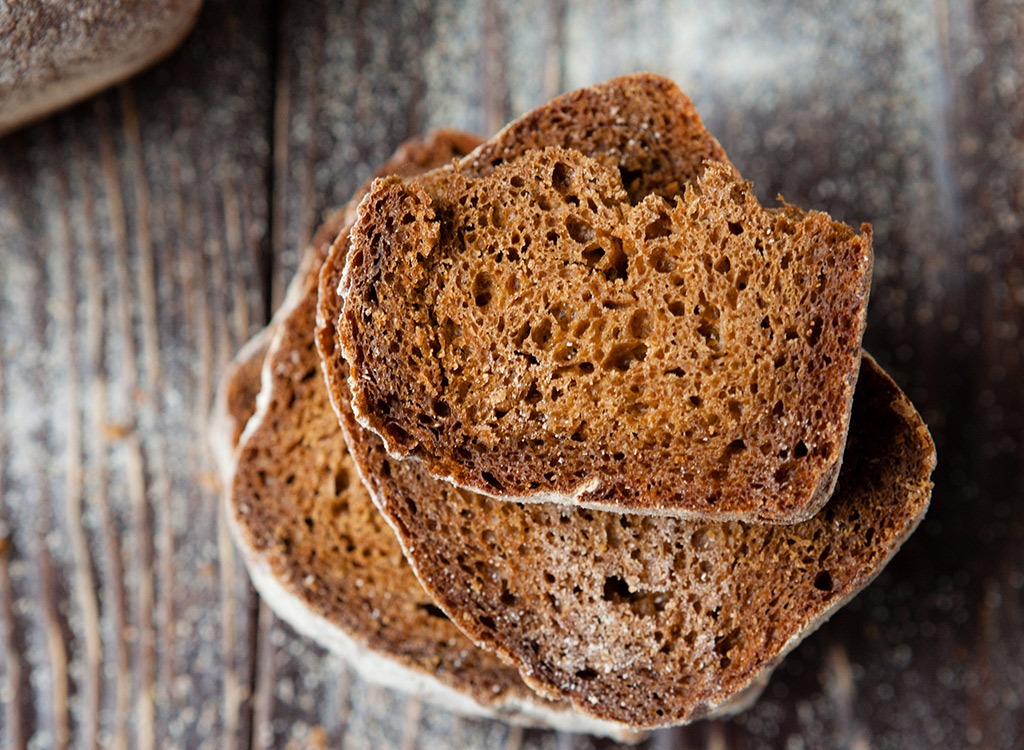
"Most of the time when you see 'wheat bread' it does NOT mean WHOLE WHEAT, and is just refined white bread!" says Dawn Jackson Blatner, RDN, author of The Superfood Swap and nutritionist with Daily Harvest. "Refined white bread sets your blood sugar & energy levels on a roller coaster of a quick up and then crashing down. Your best bet is sprouted whole grain bread to have that avocado toast on! And be sure to add protein like hemp seeds or an organic egg."
Flavored Coffee Drinks

"I totally get wanting to enjoy your morning coffee in a fun way. However, most flavored coffee drinks are high in calories and sugar and contain little to no other nutrition," says Maggie Michalczyk, RDN, registered dietitian nutritionist at Once Upon a Pumpkin. "Treating one as breakfast for the day can leave you feeling jittery with a sugar crash shortly after. Instead, I recommend making a coffee smoothie at home with cold brew, banana, almond butter, and some delicious, pure honey."
Fruit Juice
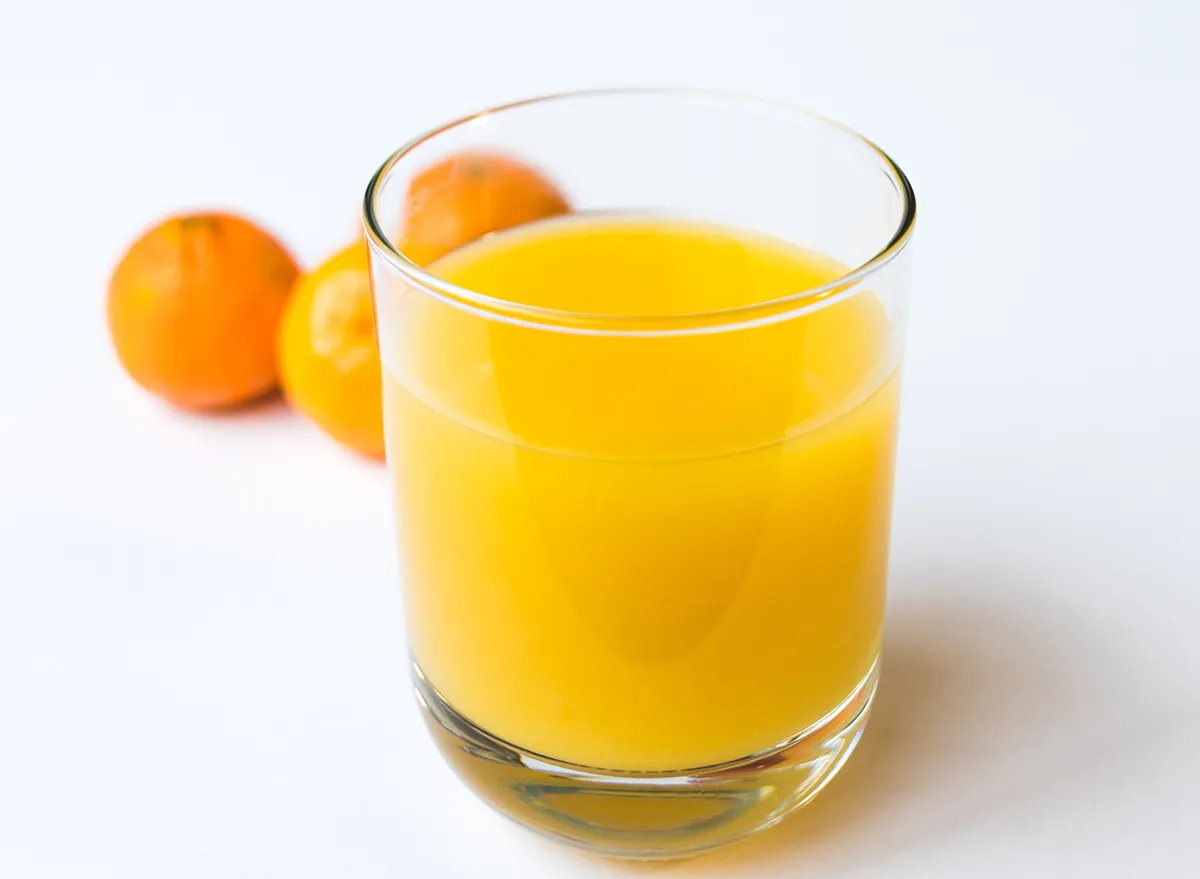
"Although you might want vitamin C or a quick hit of nutrients, juice isn't the way to do it. When you make juice, you remove all the fiber but still get all the sugar and calories. Drinking a glass of orange juice is equal to eating about 5-6 oranges and over 300 calories!" says Amy Shapiro, MS, RD, CDN, Founder + Director of Real Nutrition, and nutritionist with Daily Harvest. "If you just ate the orange and kept the fiber you'd be satisfied from one orange. Too much sugar even from fruit can lead to weight gain, sugar cravings, and energy slumps. Skip the juice and reach for a smoothie instead! Smoothies keep all the natural fiber from plants, fill you up and slow digestion."
Bakery-style Muffins
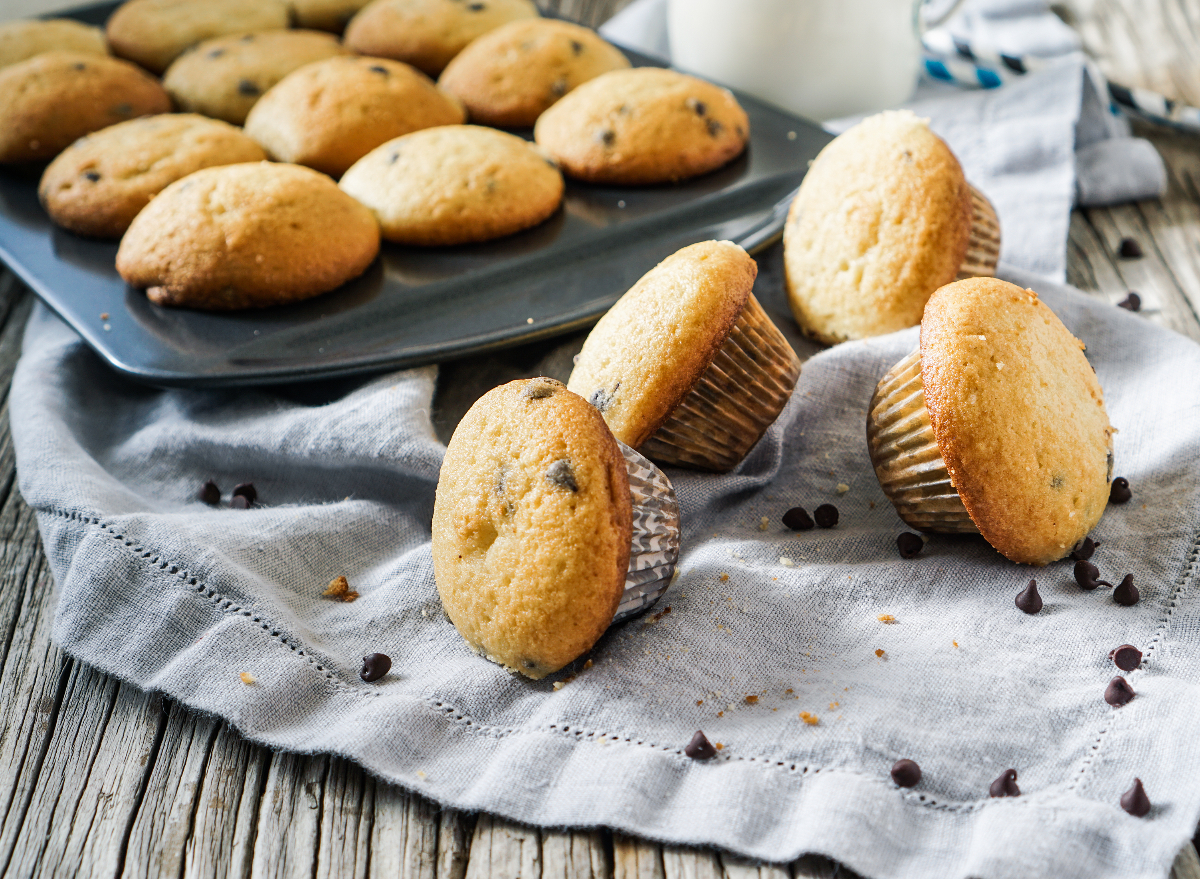
"Let's be honest, most muffins are essentially cupcakes without the frosting. And in fact, many muffins, especially ones you buy at a coffee shop or the grocery store, have more calories, saturated fat, and sugar than some cupcakes," says McGrane. "They also tend to be very low in protein, meaning that muffin is unlikely to keep you full for very long."
Toaster Pastries
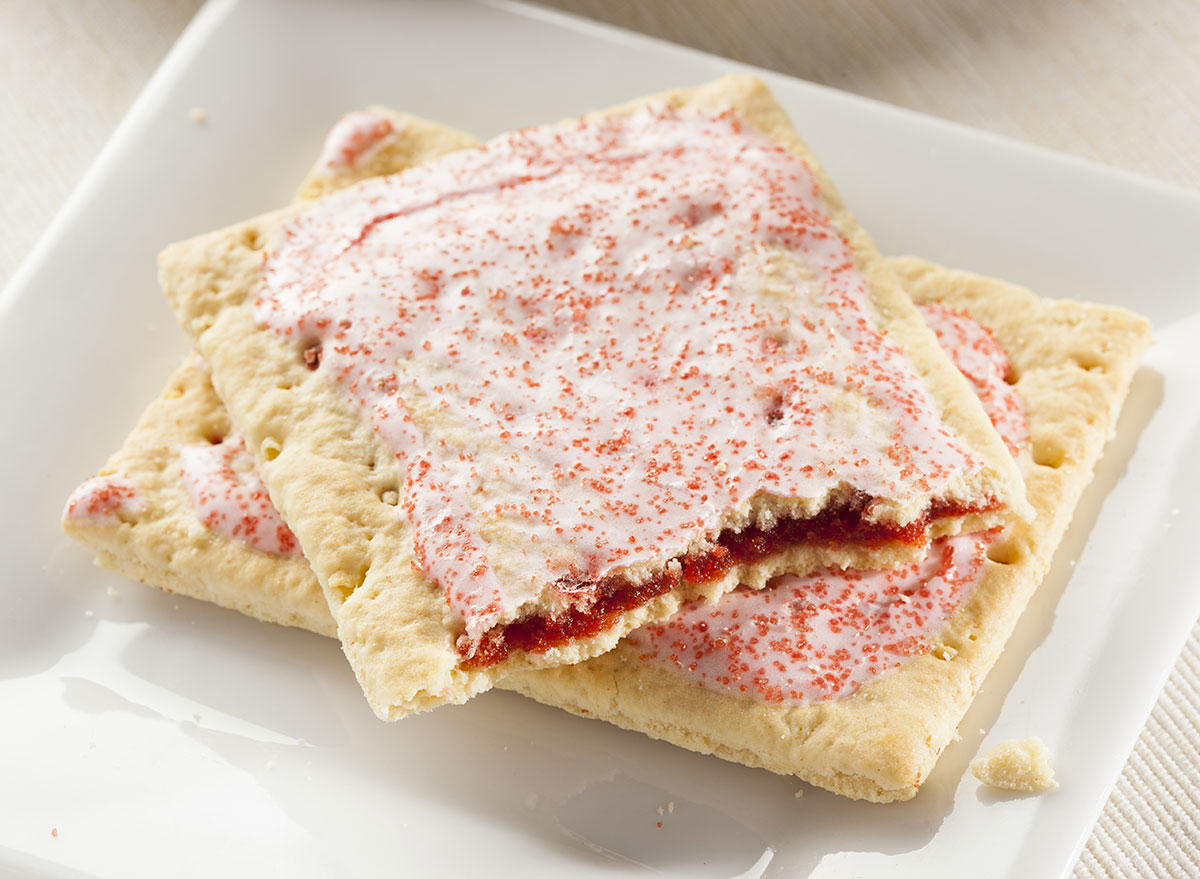
"Unfortunately, these popular breakfast pastries don't provide much nutrition to your body. Toaster pastries tend to be made from refined grains (refined grains lack nutrient-rich vitamins, minerals, and fiber found in whole grains), they are typically high in sugar, contain no real fruit (lacking vitamins, minerals, antioxidants, water content, and fiber) and are low in protein, which helps us stay full for longer)," says Ehsani. "Instead, make your own healthy toast by toasting up a piece of whole wheat bread, add some nut butter like almond butter or peanut butter, top it with slices of fruit like banana slices and berries and sprinkle on healthy seeds like chia or flax seeds (to get a boost of brain-boosting fats)."
Coffee Shop Plant-Based Latte

"Most coffee shops serve plant-based milk that's low in protein and pre-sweetened. Most of my clients have no idea the plant milk is sweetened!" says Jackson Blatner. Even though the caffeine may give you an energy boost, one of these sweetened lattes won't give you the long, sustained fuel you need to make it into the afternoon feeling supercharged. Ask your coffee shop if they have unsweetened plant milk, make a latte at home using unsweetened milk.
Dry Cereal
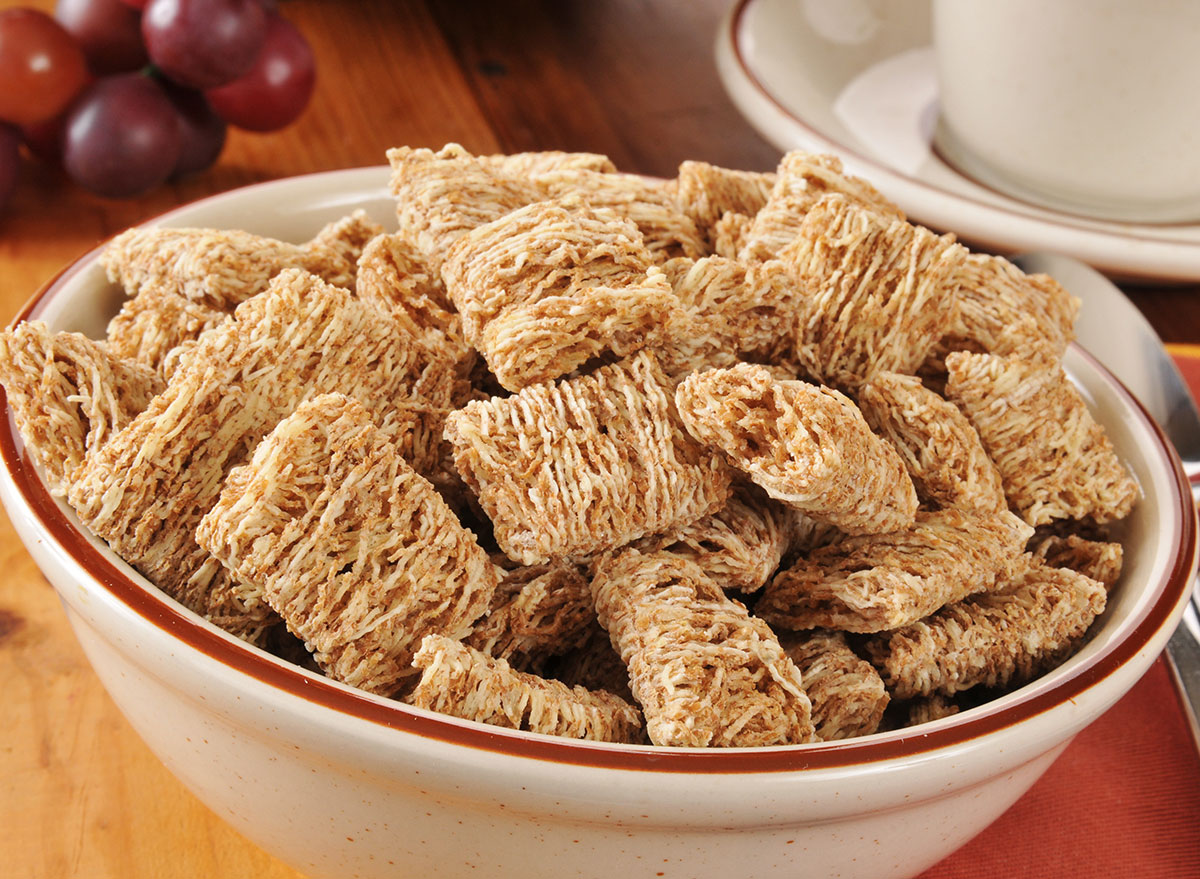
"Dry cereal often doesn't satisfy hunger because it is high in carbohydrates but low in fiber. Therefore it digests quickly, leaving you hungry shortly after and looking for something else to eat," says Shapiro. "Starting your day this way can quickly lead to blood sugar drops, low energy, and sugar cravings. You may just find yourself staring into that vending machine before lunch!"
Fat-free Flavored Yogurt
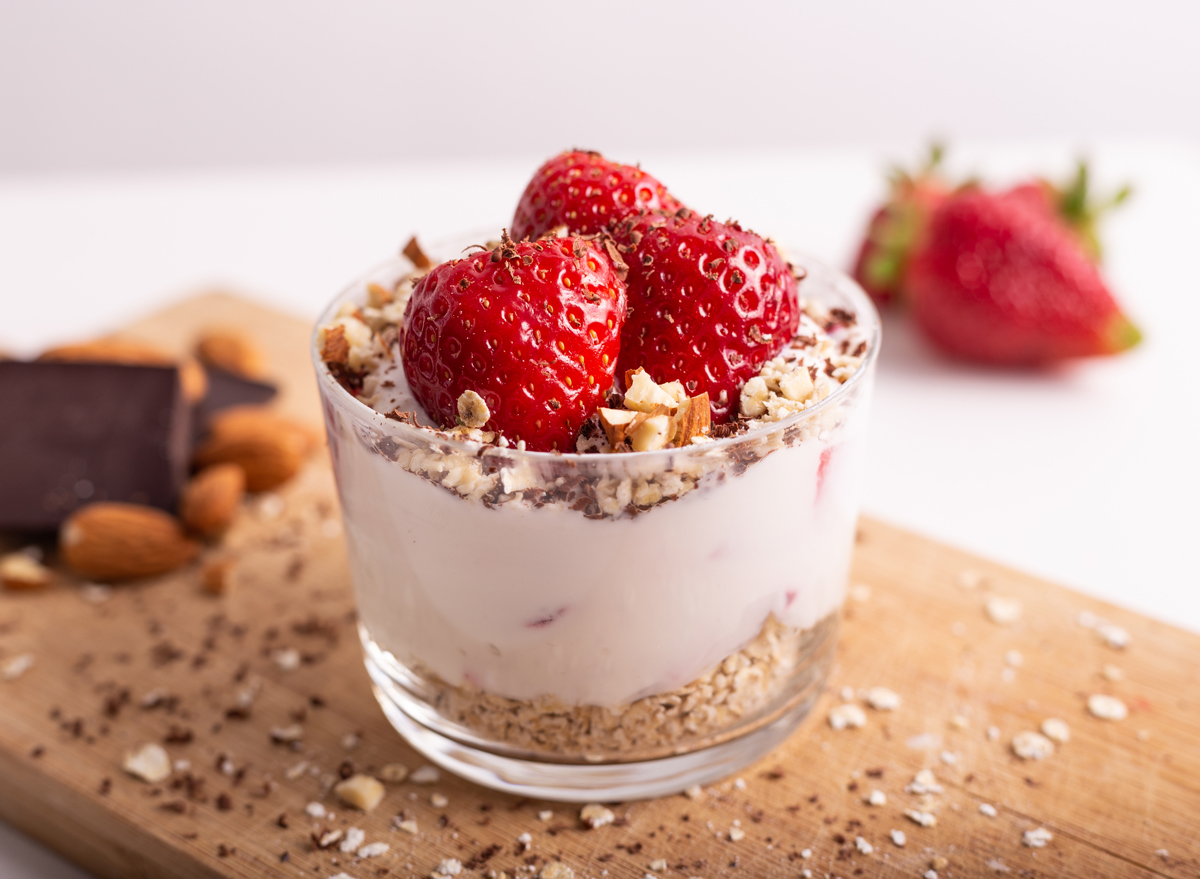
"Plain yogurt, especially Greek yogurt, is a great option in the morning as it's high in protein and calcium," says McGrane. "However, steer clear of fat-free flavored yogurts as most brands make up for the lack of fat by adding more sugar. As a result, many fat-free flavored yogurts end up having as much, if not more, sugar than the same-sized serving of ice cream!"
Pre-made Smoothies or Pre-Made Protein Drinks
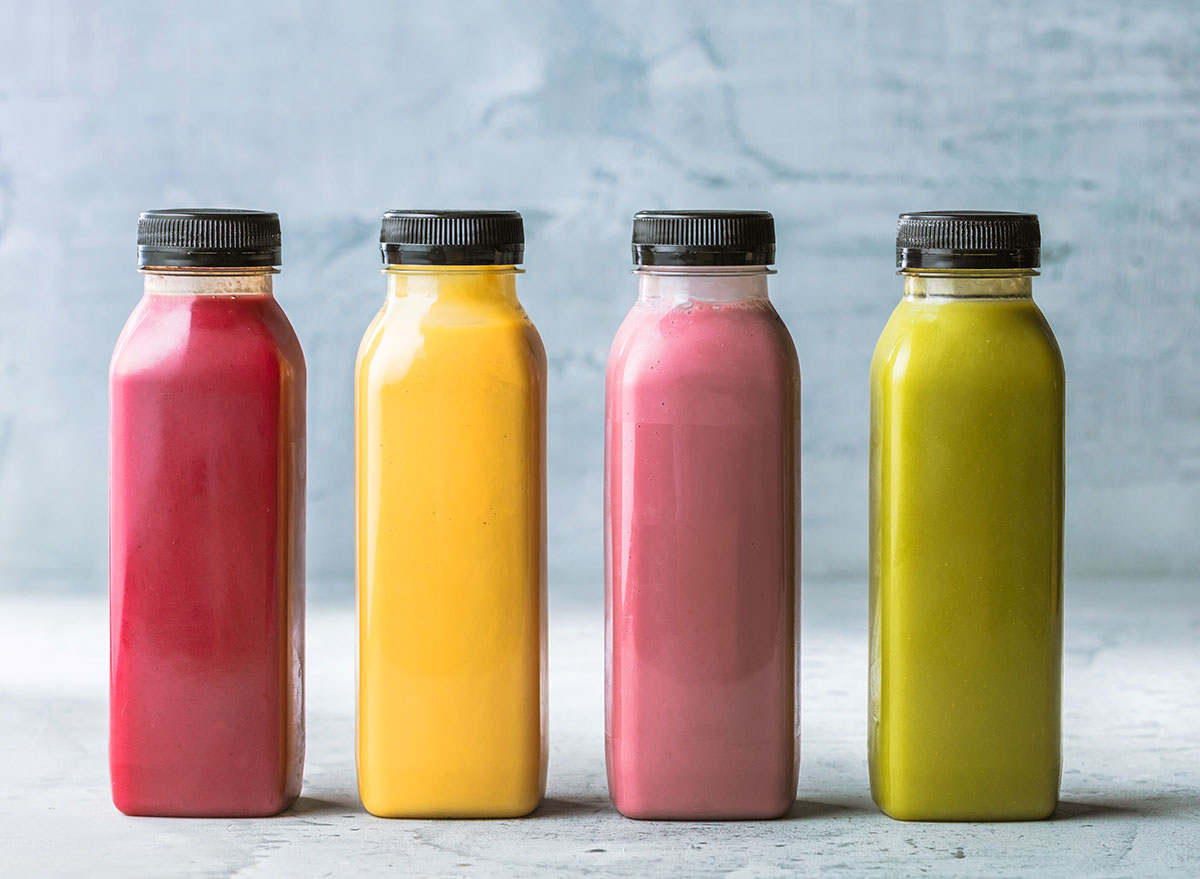
"Although smoothies or juices may claim to have fruits and vegetables in them, if you look at the ingredient list of a pre-made smoothie or pre-made protein drink, they typically contain fruit juices instead of real fruit which lacks dietary fiber. Dietary fiber supports overall digestive health, aids in helping a person stay full for longer," says Ehsani. "Rather than purchasing a pre-made smoothie or protein shake, how about you make your own at home so you can add some fiber. To make your own smoothie or protein drink at home, mix together fluid (water, milk, or non-dairy milk option), a source of protein (a scoop of protein powder, cottage cheese, Greek yogurt), a healthy fat (chia seeds, nuts, seeds, flax seeds, avocado), fruits (any variety), and some greens (baby spinach or baby kale)."
Bagels
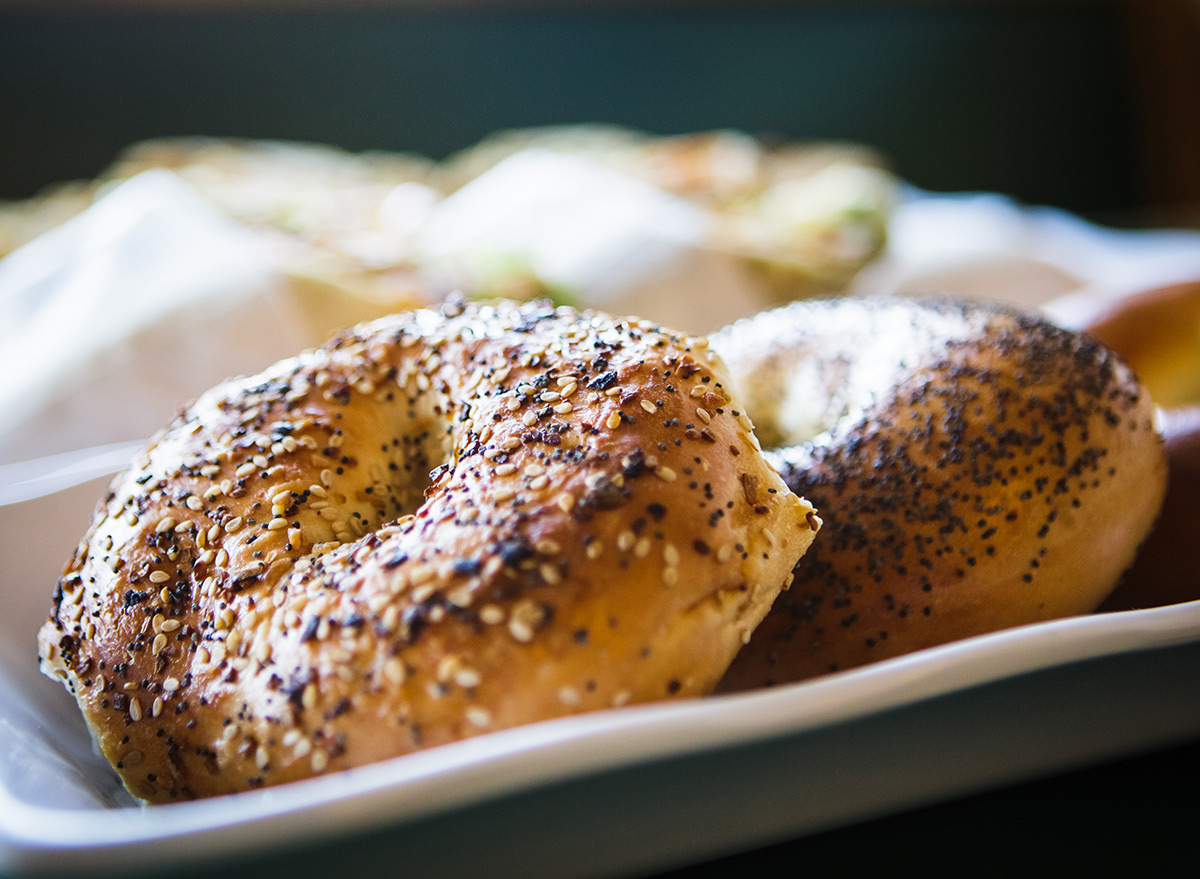
"Although delicious, bagels are full of simple carbohydrates that will fill you up for a short period of time and then leave you feeling sluggish and hungry shortly after," says Shapiro. "Also what you typically put on a bagel is loaded in saturated fat that can lead to high cholesterol and clogged arteries. Finally, bagels are dense and equivalent to 5-7 slices of bread!"
Sweetened Plant-Based Yogurt
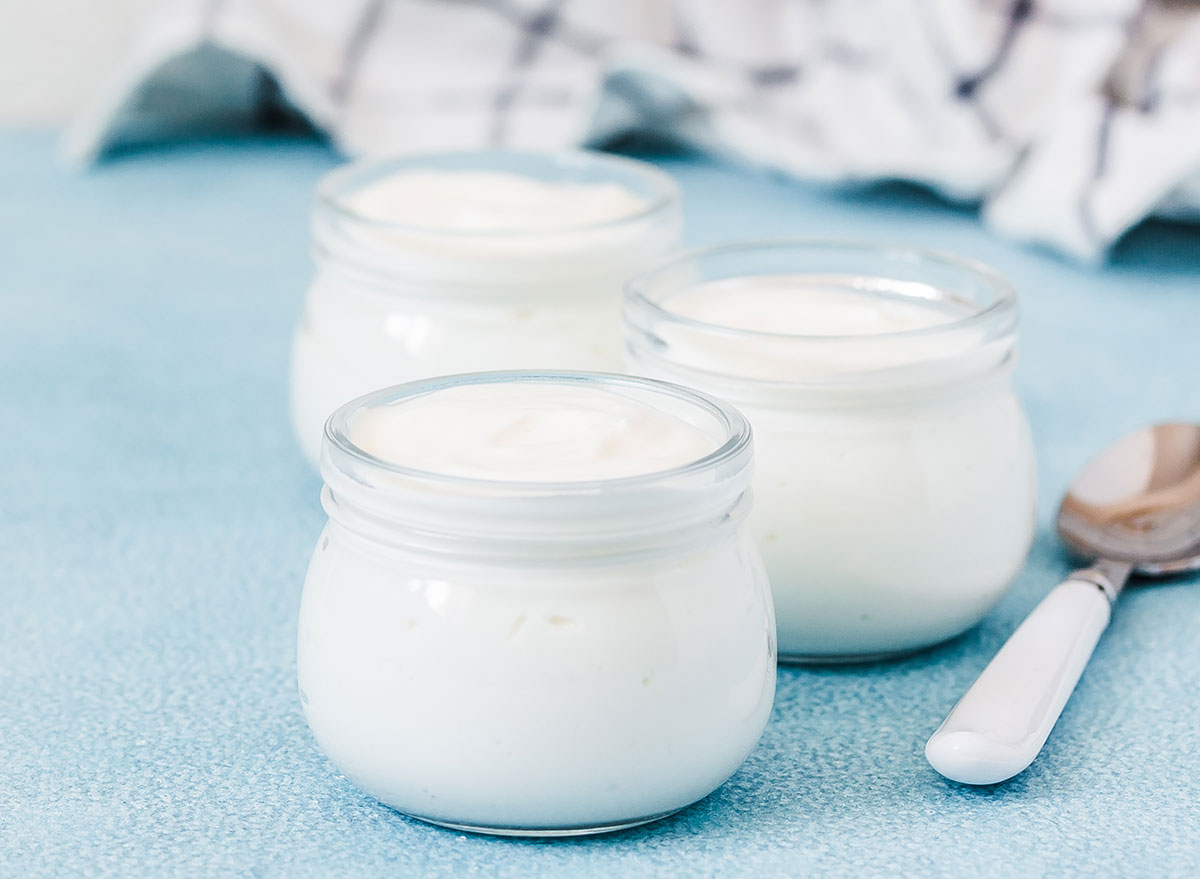
"Most plant-based yogurts are low in protein and highly sweetened. This sets you up for a sugar crash before lunch," says Jackson Blatner. "If you love plant-based yogurt, try to get unsweetened varieties and add your fresh fruit and nuts for added plant protein. Or for an even more nourishing swap, consider chia pudding. Chia seeds naturally have fiber, protein, and good fat."
No comments:
Post a Comment